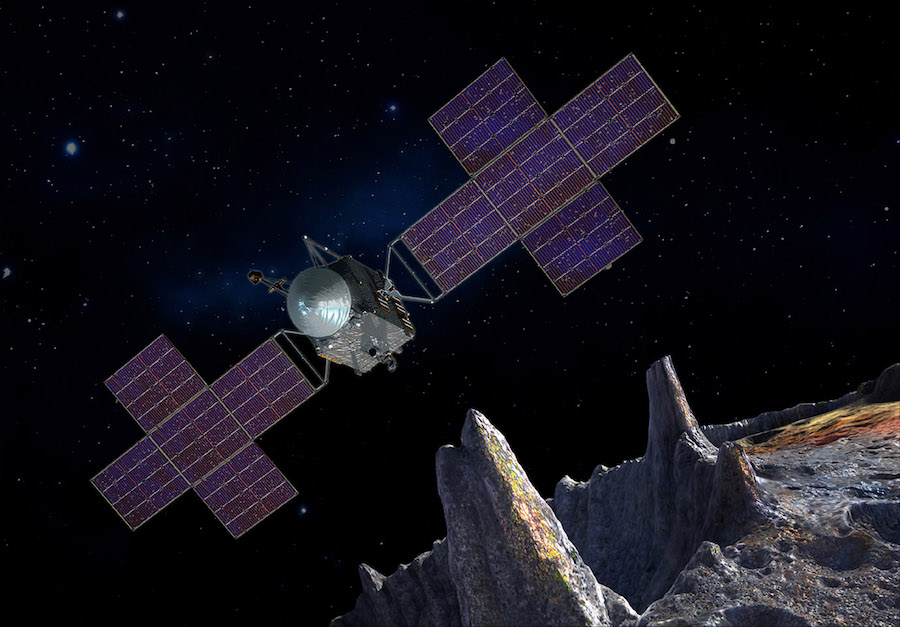16 Psyche was actually discovered in 1852, but this is the first time scientist get a closer look. What makes it special is that, unlike most asteroids that are either rocky or icy, 16 Psyche is made almost entirely of iron and nickel, a study published this week in The Planetary Science Journal shows.
Tracy Becker, a planetary scientist and author of the paper, says the asteroid is likely the leftover core of a planet that never properly formed because it was hit by objects in our solar system and effectively lost its mantle and crust.
Closer look
While Hubble has been able to get clear images of 16 Psyche, only a visit to its surface will reveal what it’s really like. Fortunately, NASA already has plans to do just that as part of its Discovery Program, with an orbiter is set to launch from Florida’s Kennedy Space Center in August 2022.
The mission would arrive at 16 Psyche in January 2026 and spend at least 21 months mapping and studying the asteroid’s unique properties.
“To understand what really makes up a planet and to potentially see the inside of a planet is fascinating,” says Becker, who is also a planetary scientist at the Southwest Research Institute in San Antonio, Texas. “Once we get to Psyche, we’re really going to understand if that’s the case, even if it doesn’t turn out as we expect
If the mission could kindly bring the asteroid back to Earth, every person on the planet — all 7.8 billion of us — would get roughly $1.3 billion, based on current metal prices.





